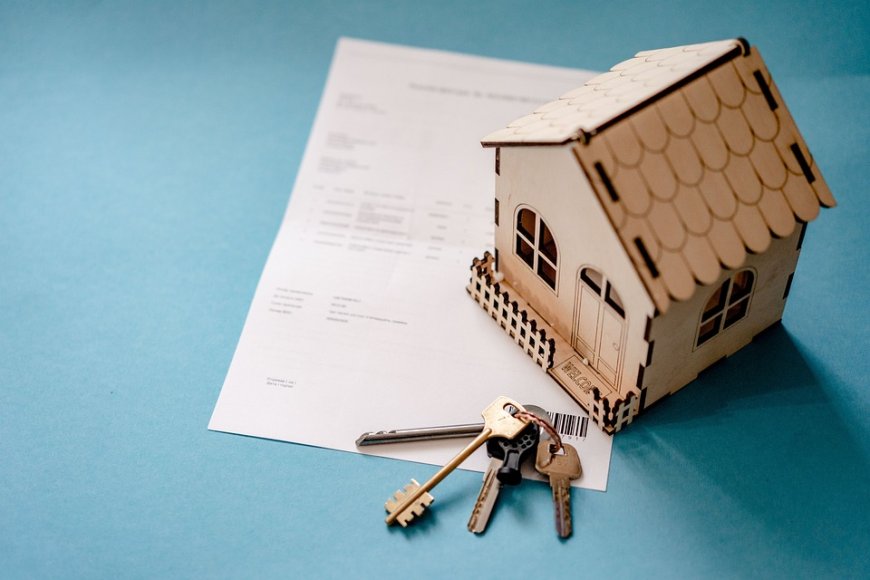Guide to refinancing your mortgage to save money on interest

Guide to refinancing your mortgage to save money on interest
Welcome to the world of mortgage refinancing, where you have the power to save big bucks on interest and take control of your financial future!
If you're a homeowner looking for ways to reduce your monthly mortgage payments or pay off that loan sooner, then you've come to the right place.
In this comprehensive guide, we'll walk you through everything you need to know about refinancing your mortgage like a pro.
But first things first: what exactly is refinancing? Think of it as giving your home loan a makeover – it's all about replacing your current mortgage with a new one that comes with better terms and conditions.
By doing so, savvy homeowners can potentially secure lower interest rates, adjust their repayment schedule, or tap into their home equity for other purposes.
So if saving money sounds like music to your ears (and who doesn't love some extra cash in their pocket?), let's dive deep into the ins and outs of refinancing.
From when it makes sense to refinance, to how you can go about it seamlessly – buckle up and get ready for some serious knowledge bombs coming your way!
What is refinancing?
Refinancing, my friend, is like a financial makeover for your mortgage. It's the process of replacing your current home loan with a new one that has better terms and conditions. So why would you want to do this? Well, let me break it down for you.
Refinancing allows you to potentially secure a lower interest rate on your mortgage. And who doesn't love saving money on interest?
By snagging a lower rate, you can reduce your monthly payments and have more cash in your pocket each month.
But wait, there's more! Refinancing also gives you the opportunity to adjust the repayment schedule of your loan.
This means you can choose to extend or shorten the term of your mortgage based on what works best for your financial goals.
Oh, did I mention tapping into that sweet equity? Yep, by refinancing, homeowners can access their home equity – which is essentially the difference between the market value of their property and any outstanding mortgage debt. You can use this newfound equity for things like home improvements or paying off high-interest debts.
So basically, refinancing is all about taking control of your mortgage and making it work harder for you. It's an opportunity to save money on interest payments or use some extra cash from your equity to improve other areas of your life. Sounds pretty good, right?
Now that we've covered what refinancing entails let's move on to when it actually makes sense to consider this financial maneuver! Stay tuned!
When should you refinance your mortgage?
When should you refinance your mortgage? This is a common question that many homeowners ask themselves.
The answer depends on several factors, including the current interest rates, your financial goals, and how long you plan to stay in your home.
One of the main reasons people choose to refinance their mortgage is to take advantage of lower interest rates.
If the current interest rate is significantly lower than what you're currently paying, refinancing could save you thousands of dollars over the life of your loan.
It's important to calculate how much money you would save by refinancing and compare it to any fees or closing costs associated with the process.
Another reason homeowners consider refinancing is if they want to change their loan term. For example, if you have a 30-year fixed-rate mortgage but want to pay off your loan sooner, you can refinance into a 15-year fixed-rate mortgage.
While this may increase your monthly payments, it can potentially save you thousands of dollars in interest over time.
Some homeowners also opt for cash-out refinancing when they need access to additional funds for home improvements or other expenses.
This allows them to borrow against their home equity and receive cash at closing. However, it's essential to carefully consider whether taking on more debt is in line with your overall financial goals.
Timing plays a crucial role in deciding when to refinance as well. If you plan on selling your home within the next few years, it might not make sense financially unless there are significant savings involved upfront due to reducing monthly payments or consolidating higher-interest debts.
Determining when should be based on careful evaluation of current market conditions coupled with an understanding of personal financial objectives such as reducing overall costs or accessing additional funds while considering how long one intends staying put before moving forward with any decisions regarding refinancing mortgages!
How to refinance your mortgage
Refinancing your mortgage can be a smart financial move if you're looking to save money on interest. Here's a step-by-step guide on how to refinance your mortgage.
1. Assess Your Financial Situation: Before starting the refinancing process, take a close look at your current financial situation. Consider factors like your credit score, income stability, and the equity you have in your home.
2. Research Lenders: Shop around for different lenders who offer competitive rates and terms for refinancing. Look online, ask friends or family members for recommendations, and compare offers from multiple lenders.
3. Gather Necessary Documents: To apply for refinancing, you'll need to gather important documents such as pay stubs, tax returns, bank statements, and information about your current mortgage.
4. Calculate Costs vs. Savings: Determine whether refinancing makes financial sense by comparing the costs of refinancing (such as closing costs) with potential savings in interest payments over time.
5. Submit an Application: Once you've chosen a lender and gathered all necessary documents, it's time to submit an application for refinancing. Be prepared to provide detailed information about yourself and your property.
6. Lock in Your Rate: If approved for refinancing, consider locking in an interest rate that works best for you while keeping an eye on any associated fees or points involved.
7. Close the Loan: After finalizing all paperwork and meeting any remaining requirements set by the lender, it's time to close the loan officially through signing legal documents.
Remember that each individual's situation is unique when it comes to mortgage refinance options! It is essential always to consult with professionals who can guide you based on their expertise!
Refinancing can be a complex process but taking advantage of lower interest rates could potentially help save money over the long term without being too costly upfront! So explore this option thoroughly before making any decisions related to mortgage refinance!
Pros and Cons of refinancing
Refinancing your mortgage can seem like an attractive option to save money on interest, but it's important to weigh the pros and cons before making a decision. Here are some factors to consider:
1. Pros of refinancing:
- Lower interest rates: If current interest rates are lower than when you first took out your mortgage, refinancing can help you secure a lower rate, potentially saving you thousands of dollars over the life of your loan.
- Cash-out option: Refinancing allows you to access equity in your home by taking out a larger loan amount. This extra cash can be used for various purposes such as home improvements or debt consolidation.
- Change loan terms: Refinancing gives you the opportunity to switch from an adjustable-rate mortgage (ARM) to a fixed-rate mortgage (FRM), providing stability and predictability in monthly payments.
2. Cons of refinancing:
- Closing costs: Just like when initially purchasing a home, there are closing costs associated with refinancing that can add up quickly. Make sure to factor in these expenses when considering whether the potential savings outweigh the upfront cost.
- Extended loan term: While refinancing may reduce your monthly payment, if you extend the length of your loan term, it could ultimately result in paying more in interest over time.
- Resetting the clock: When you refinance, it essentially starts a new mortgage with its own set of fees and paperwork. This means that any progress made towards paying off your original loan is reset.
It's crucial to carefully evaluate these pros and cons based on your individual financial situation before deciding whether or not to refinance. Consulting with a reputable lender or financial advisor can also provide valuable insights tailored specifically to your needs and goals.
Alternatives to refinancing your mortgage
While refinancing your mortgage can be a great option for saving money on interest, it's not the only choice available to homeowners. If you're looking for alternatives or want to explore other options before committing to a refinance, consider the following:
1. Make extra payments: Instead of refinancing, you could choose to make additional payments towards your principal each month. By doing so, you'll reduce the amount of interest paid over time and potentially shorten the length of your loan.
2. Modify your loan terms: Another alternative is reaching out to your lender and requesting a modification of your loan terms. This could involve negotiating a lower interest rate or extending the repayment period in order to lower monthly payments.
3. Explore government programs: Depending on your circumstances, there may be government programs available that can help lower your mortgage costs without having to refinance. Research options like Home Affordable Refinance Program (HARP) or Federal Housing Administration (FHA) loans.
4. Consider a home equity line of credit (HELOC): A HELOC allows you to borrow against the equity in your home while keeping the existing mortgage intact. This can provide access to funds without going through a full refinance process.
5. Consult with a financial advisor: If you're unsure about which alternative is best for you, seeking guidance from a financial advisor can be beneficial. They will assess your specific situation and offer personalized advice based on their expertise.
Remember, every homeowner's financial situation is unique, so what works for one person may not work for another when it comes to alternatives for refinancing mortgages. It's important to carefully evaluate all options and choose what aligns best with our goals and circumstances.
Conclusion
Refinancing your mortgage can be a smart financial move if done at the right time and under the right circumstances.
It allows you to take advantage of lower interest rates, potentially saving you thousands of dollars over the life of your loan. However, it's important to carefully consider all factors before making a decision.
Before deciding to refinance, assess your current financial situation and long-term goals. Consider how long you plan to stay in your home, as well as any potential changes in income or expenses that may impact your ability to make monthly payments.
When refinancing, shop around for the best possible terms and rates from different lenders. Compare offers and carefully review all closing costs associated with the new loan. Don't forget to factor in any prepayment penalties on your existing mortgage.
While there are numerous benefits to refinancing, such as reducing monthly payments or shortening the loan term, there are also potential downsides. Refinancing often involves upfront costs that can eat into potential savings. Additionally, extending the term of your loan could result in paying more interest over time.
If refinancing doesn't align with your current financial situation or goals, remember that there are alternative options available for managing mortgage payments.
These alternatives include making extra principal payments each month or exploring government assistance programs designed to help homeowners facing hardship.
Whether you choose to refinance or pursue an alternative option will depend on various factors unique to your individual circumstances.
It is always recommended that you consult with a trusted financial advisor before making any major decisions regarding your mortgage.
Refinancing can be a powerful tool for saving money on interest if utilized correctly but should not be taken lightly. By understanding when it makes sense for you personally and navigating through the process wisely by considering both pros and cons along with other alternatives available; You'll be better equipped to make an informed decision about whether refinancing is right for you.











.jpg)



































